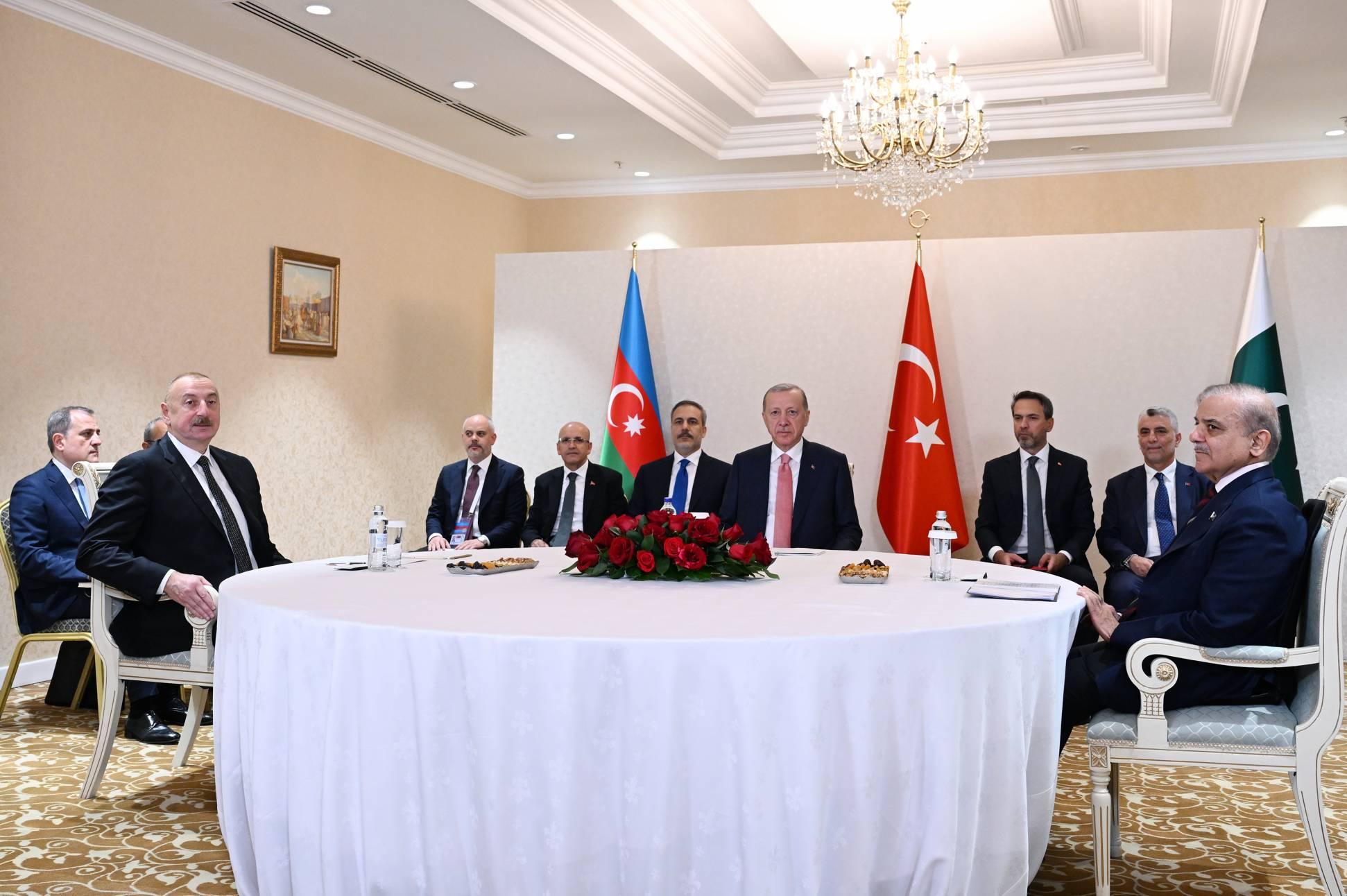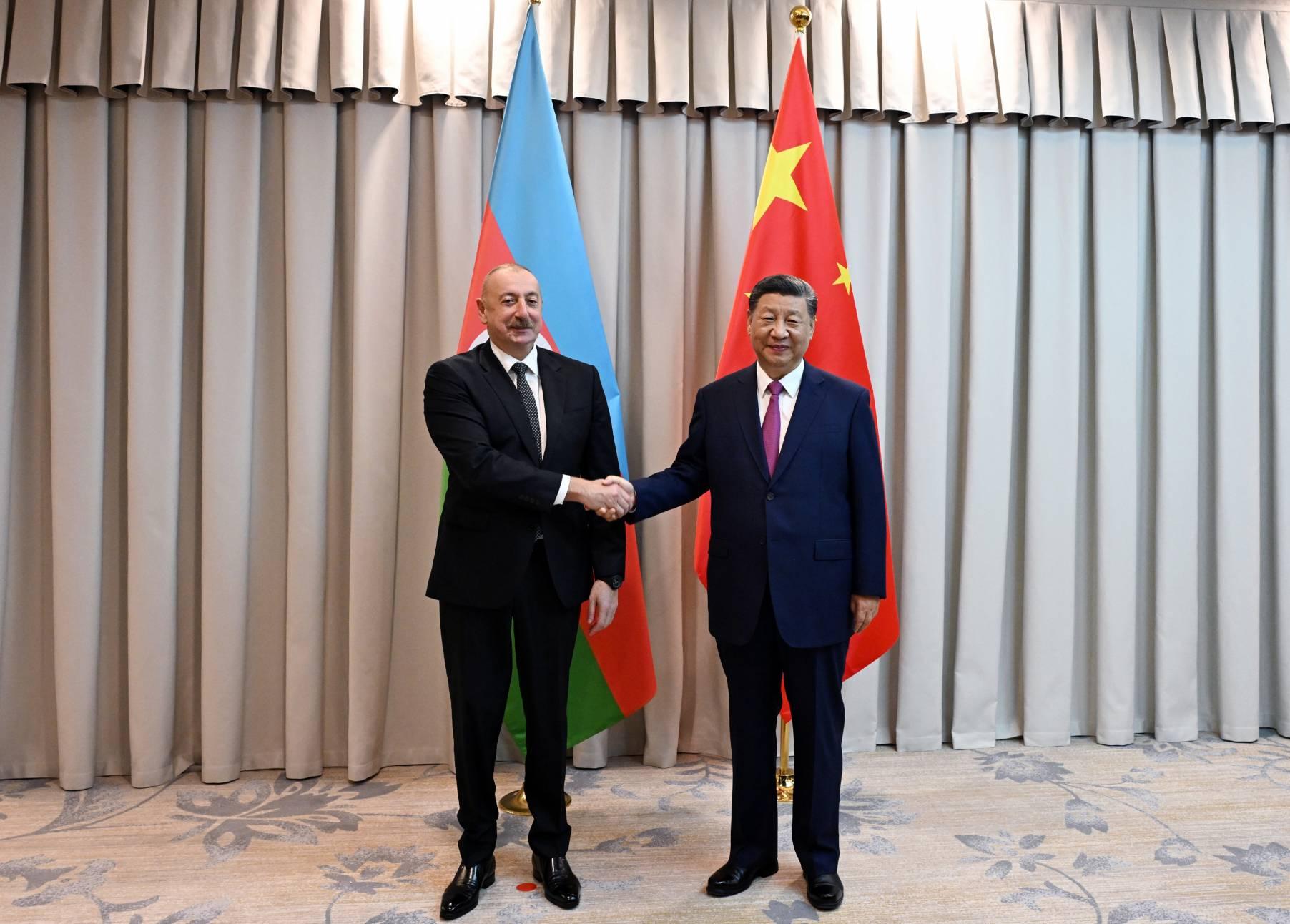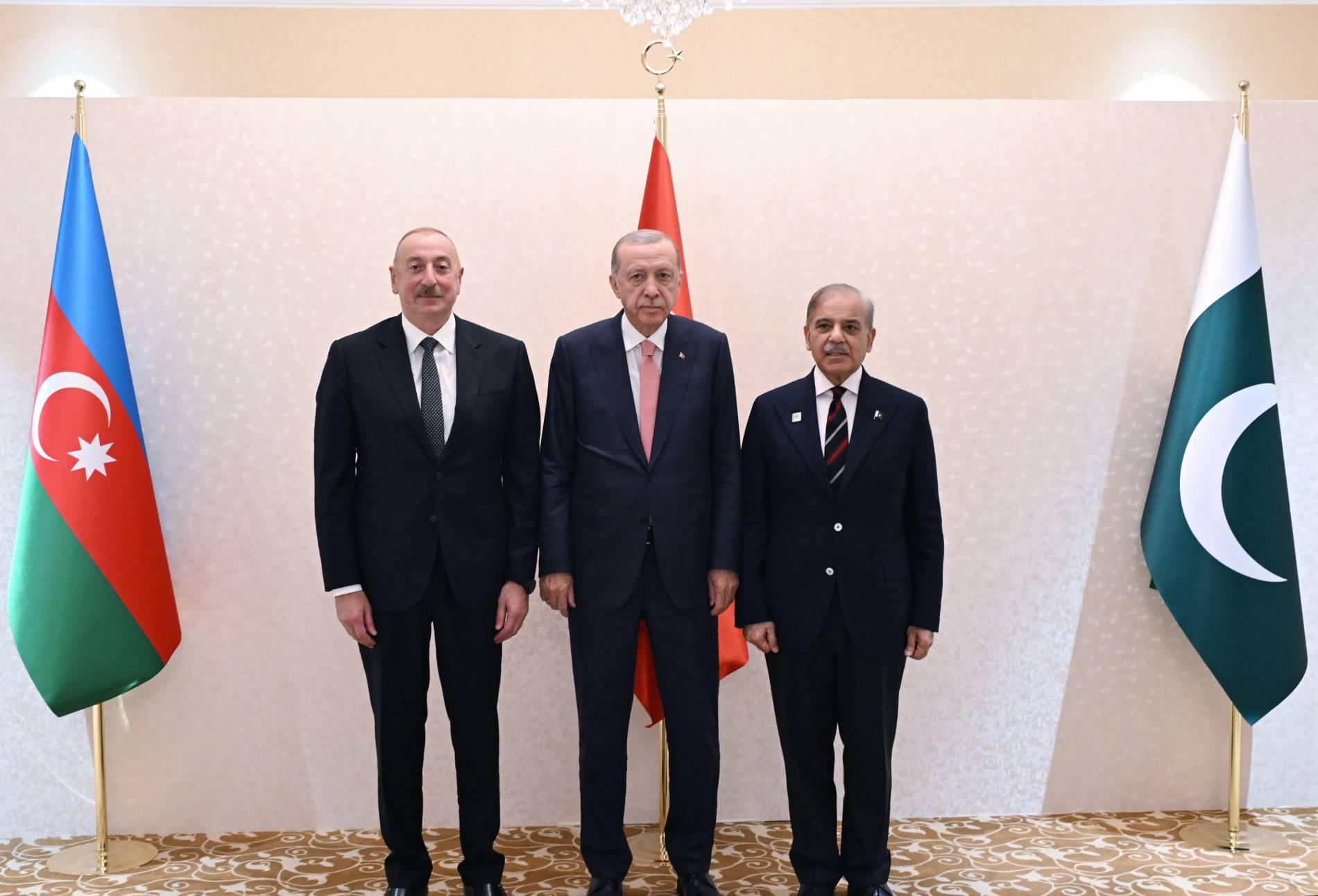Baku, Ankara, Islamabad, Beijing redefine regional dynamics Geopolitical realities vs. unattainable dreams
On July 3, on the sidelines of the Shanghai Cooperation Organisation (SCO) Summit in Astana, a trilateral meeting was held between President Ilham Aliyev of Azerbaijan, President Recep Tayyip Erdogan of Türkiye, and Prime Minister Muhammad Shehbaz Sharif of Pakistan. During the summit, held for the first time in this format, the leaders acknowledged the unique aura of their relationships, shaped by historical and religious bonds and fraternity.
Against the backdrop of discussions on the prospects for the development of trade and economic ties in a trilateral format in line with the spirit of political relations among the countries, the leaders expressed concern about the militarization policies of extra-regional states in the South Caucasus. Subsequently, they discussed defence and defence industry cooperation and advocated for the continuation of regular “Three Brothers" joint military exercises, a practice that began with joint drills in 2021.

During the meeting, President Erdogan stated that Türkiye, Azerbaijan, and Pakistan could undertake joint initiatives in many areas that would benefit all three countries. He emphasized that cooperation in a region marked by wars, conflicts, and tensions would also contribute to regional and global peace.
In light of the aforementioned, it is worth recalling that in 2021, the foreign ministers of Türkiye, Azerbaijan, and Pakistan signed the Islamabad Declaration, which outlined the deepening of trilateral political and economic cooperation, as well as collaboration “in the fields of peace and security and other areas.” According to the Turkish side’s statements following the meeting, the three countries “decided to take significant steps to enhance security, stability, and prosperity,” marking a shift from the first meeting held in this format in 2017 in Baku, and now moving the focus to Türkiye.
On July 3, it was Astana’s turn to serve as the venue for deepening cooperation. It is hardly a coincidence that the recent negotiations between Baku, Ankara, and Islamabad, with a serious agenda, took place directly on the sidelines of the SCO summit. This is especially notable in the context of the signing of the Strategic Partnership Declaration between China and Azerbaijan, which Chinese President Xi Jinping called a “new starting point” for “increasing mutual support for the benefit of both peoples.”

One might wonder if France and India truly believe they can counter this geopolitical triangle, and even more so with the practically ineffective involvement of Armenia in political and economic terms. But why a triangle? The elements of a square (some would say a quadrilateral) are already forming here.
Indeed, what (and in what area) Armenia, together with France and India, will be able to oppose the plans of Baku, Ankara, Islamabad and Beijing? The notorious "Crossroads of Peace"? Or a “lesson” for Armenia in its conflict with Türkiye and Pakistan? Indeed, there have been fanciful dreams of routing the North-South Corridor through Yerevan and India's ambitions to connect the Iranian port of Chabahar with Eurasian "points" and the European continent via Armenia.
Well, as they say, dreaming is harmless. What’s harmful is sincerely believing in geopolitical castles in the air that will never become a reality. It’s harmful because these unattainable pseudo-dreams distract from acknowledging historical truths, without which progress for our geographical neighbors is fundamentally impossible.

We might not have focused on this last perspective, but Ilham Aliyev, in his recent Independence Day greeting to US President Joseph Biden, confidently portrayed Azerbaijan as an “advocate for an integrated and inclusive South Caucasus regional cooperation model based on new geopolitical realities and justice, free from any divisive lines.”
The President emphasized that Azerbaijan, as the initiator of the peace agreement with Armenia and the five principles underpinning it, consistently demonstrates the political will to advance the peace agenda.
Therefore, before Armenia, France, and India entertain any notions of resurrecting aggressive ambitions against Azerbaijan, they would be wise to confront the geopolitical reality. In this reality, the relationships between Baku, Ankara, Islamabad, and Beijing have taken on entirely new dimensions.
By Teymur Atayev
The views and opinions expressed by guest columnists in their op-eds may differ from and do not necessarily reflect the views of the editorial staff.








